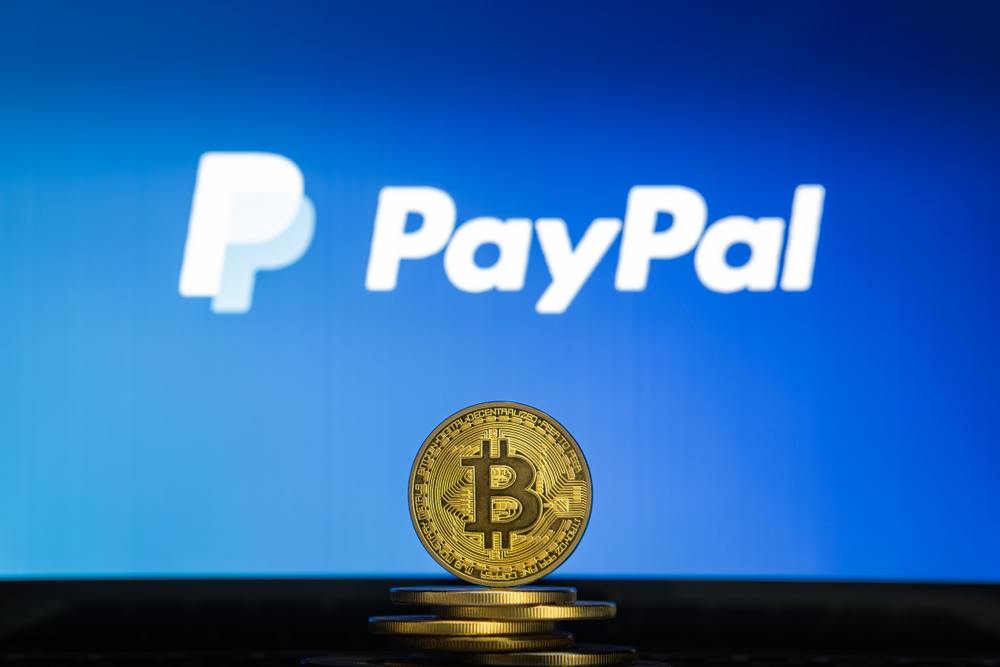PayPal Skips Bitcoin While ‘Clearly Working on Blockchain and Cryptocurrency’

PayPal isn't keen on putting a focus onto bitcoin just yet. | Source: Shutterstock
By CCN.com: Online financial services firm PayPal believes it is too early to pronounce Bitcoin as the future of payments. Nevertheless, the $128 billion financial services firm is pursuing blockchain and cryptocurrency projects, Yahoo Finance reports.
Paypal Doesn’t Want to Miss out on Blockchain and Crypto Revolution
According to John Rainey, PayPal’s chief financial officer, cryptocurrencies and blockchain technology could be disruptive and the financial services firm doesn’t want to miss out:
We have teams clearly working on blockchain and cryptocurrency as well, and we want to take part in that in whatever form that takes in the future — I just think it’s a little early on right now [on bitcoin].
PayPal’s CFO is not alone in the company’s top management ranks with regards to Bitcoin skepticism. The firm’s CEO, Dan Schulman, earlier this year took a swipe at bitcoin saying ‘we’re not seeing many retailers at all accept any of the cryptocurrencies’.
However, he acknowledged that the underlying technology of bitcoin is ‘interesting’. Last year Schulman had noted that the reason retailers were averse to accepting bitcoin was because of its volatility.
Bitcoin Transactions May Be Slower, but Still Cheaper Than Paypal
According to Amsterdam Stock Exchange trader who goes by Crypto Michael, bitcoin is up to 80 times cheaper than PayPal. This is especially when making cross-border payments of large amounts.
Despite PayPal’s C-suite being crypto skeptic, one of the members of the company’s board begs to differ. Last month PayPal director Wences Casares said that bitcoin’s chances of succeeding exceed 50 percent, as earlier reported by CCN.com.
According to Casares, if the cryptocurrency succeeds it could shoot to over $1 million in ‘7 to 10 years’. Casares is also the CEO of bitcoin wallet firm Xapo.
Using Blockchain Technology
As PayPal’s CFO noted, the financial services firm is pursuing blockchain projects. Just last month, the payments firm invested in a blockchain technology startup known as Cambridge Blockchain, according to Forbes . The startup focuses on empowering individuals to decentralize the storage of their online digital identities without requiring intermediaries.
One of the ways PayPal could use Cambridge Blockchain’s technology is giving users a new way of proving without sharing privileged personal information unnecessarily.
In March last year, PayPal also filed a patent on blockchain technology designed to enhance cryptocurrency payment speed. The filing noted that one of the major factors hindering the adoption of cryptocurrencies was transaction speeds. Due to the wait times being as long as 10 minutes, users instead preferred traditional payment methods, the filing observed.